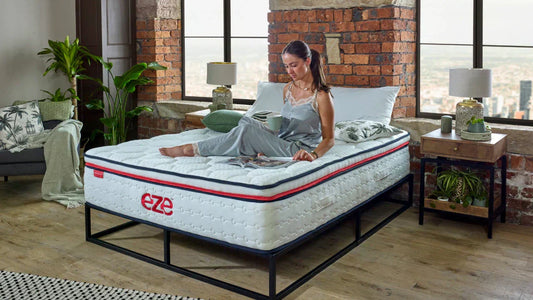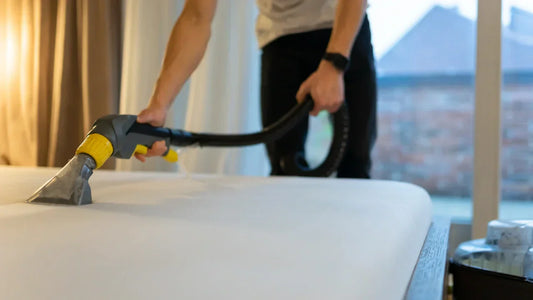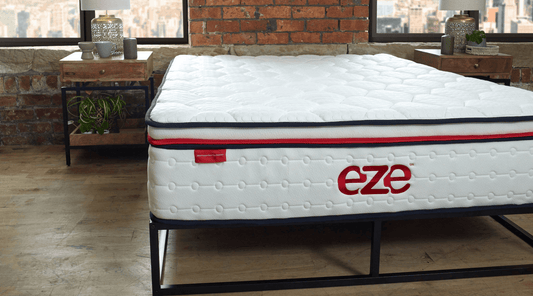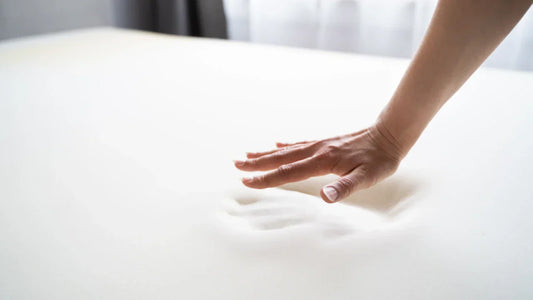Kids are constantly growing, learning and moving, both mentally and physically. Therefore, good sleep is essential for the healthy development of their young minds and bodies. Depending on their age group, it is recommended that children need between 9-15 hours of sleep each day to achieve good overall health and development.
A good bedtime routine is helpful for making sure your child falls to sleep soundly, but their bedroom environment, including their bed and mattress, can play a big part in how well they sleep through the night.
In this article we look specifically at how you can choose a mattress to help your children sleep comfortably in their early years.
Supportive Mattresses

Just like adults, all kids sleep differently and in different positions, therefore, there is not a ‘one-size-fits-all’ solution when it comes to choosing a new mattress for your child.
As with adult mattresses, the most supportive type of kids’ mattresses are pocket-sprung, memory foam and latex. A memory foam mattress is dense and body-forming, so if you know that your child moves around a lot in their sleep, then this type of mattress might help to reduce how often they wake in the night due to restlessness. Equally a mattress with a high count of pocket springs will help to support your child’s bones and joints as they sleep, so it’s important to always check the spring count and coil gauge before you buy.
Some mattresses come with various layers of material to best support a sleeping body in various positions. eze™ mattresses, for example, have six layers of comfort to best support the four most common sleep positions. This makes them an ideal option for both adults and kids alike, depending on whether they sleep on their backs, front, side or in the foetal position.
Hypoallergenic Mattresses

Choosing the right mattress could help to reduce your child’s allergy symptoms, providing them with a more restful night’s sleep. Hypoallergenic mattresses are made from materials which are relatively unlikely to cause any allergic reactions such as sneezing, a runny nose, watering eyes or itchy skin. They reduce the growth of allergy triggers such as dust mites, mould and bacteria from spreading and penetrating into the mattress.
Memory foam is naturally hypoallergenic, making it a good choice for kids who do suffer with allergies or sensitive skin. All eze™ mattresses contain a sleep surface layer that is made from soft, hypoallergenic and breathable material for ultimate protection.
If your child is prone to wetting the bed, then a hypoallergenic mattress protector or washable bed pads will help to protect the mattress underneath. These extra layers of protection will ensure that bacteria doesn’t soak down deep into the mattress, creating a breeding ground for dust mites and mould.
Growing Kids

Just like an adult’s mattress, it’s recommended that a child’s mattress is replaced approximately every 7 years too. So, when your child reaches 7 or 8 years old, it may be time for a new bed. Should you replace it with another single bed, or replace with a larger mattress to give them more space?
Research generally shows that bigger is better, when it comes to mattress size, so if you are considering a double or king-sized mattress for your child, then there is no harm in this idea. If your child’s bedroom is wide enough, then a larger bed could be a better investment than a single bunk bed, for the next 7 years of your child’s growth and development. After all, what seems like good idea at age 7, might not be the same as when they reach their early teenage years!
The Final Decision
When it comes to making the final decision on the best new mattress for your child, be sure to answer these questions:
- Does the mattress support my child’s sleeping habits and position?
- Does the mattress have hypoallergenic qualities?
- Will the mattress support my child as they grow for the next 7 years?
If the answers are all yes, then chances are you will have chosen a mattress that is both suitable and comfortable for your child.
If you are interested in exploring the eze™ range of roll up mattresses to support your child’s unique sleep position, then check out the full range here.









